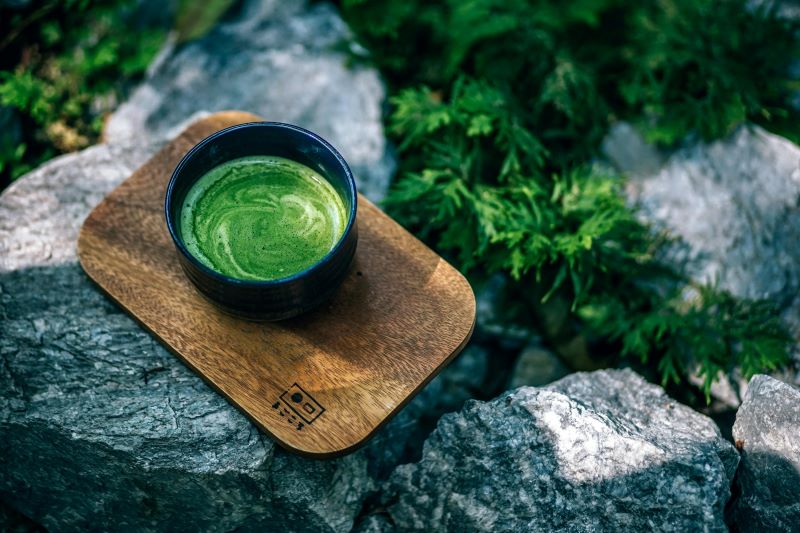Can matcha “unlock your inner samurai?”

Image: Pexels/NipananLifestyle
Matcha seems to be the Marmite of the tea world, perhaps also even the coffee world. But love it or hate it, it is a sizeable market, especially in Asia, with Europe not trailing too far behind. It’s naturally a bright grassy green colour – a descriptor many would also attribute to its taste as well as its appearance. Comprised of finely powdered green tea leaves and usually mixed with water to make matcha tea, there is a variety of companies that offer consumers the product, with varying degrees of quality.
Many consider matcha, like other natural tea and botanical infusions, to be beneficial to health when consumed, and as such this can be used as a draw for consumers. One such company is UK-based OMGTea, a specialist matcha green tea company.
Its founder, Katherine Swift, firmly believes “regular consumption of quality matcha is a simple way to do something positive for your health and wellbeing that will have both short and long-term benefits.”
Swift commented: “This is the season in Japan, known as ‘Ichibancha’, when the very best Japanese green tea is harvested. But many people in the UK don’t yet realise just how special these precious, top quality tea leaves can be.
“For example, matcha green tea has been drunk by Buddhist monks for centuries and is known to help to still and focus the mind – it is regarded as a drink of meditation. This practice is now widespread in Japan which is one of the healthiest countries in the world and is renowned for its longevity.
“Samurai traditionally consumed matcha before battle, whereas Buddhist monks drank it for relaxation and to achieve a sense of Zen. In today’s fast-paced world, many individuals facing challenges at work and home could benefit from tapping into their inner samurai or Zen. A good cup of matcha is a great way to start.”
In support of this philosophy, OMGTea runs a ‘Matcha Challenge’ every January/February, where participants consume quality matcha every day for 21 days. At the end of which they complete a survey, answering questions about their health and wellbeing, the results of which are used to assess the impact of daily matcha consumption on the participants lives.
Out of 126 respondents, 46% consumed their matcha in tea form, 64% as a latte, and 5% in a smoothie. Of this group, 88% experienced an increase in energy, likely supported by the on average 70mg of caffeine a cup of matcha contains, more than green tea but less than coffee. Accordingly, 83% said they also noted an improvement in their focus, and a further 52% felt when they were exercising that they could do more than usual, and 77% felt more “present in the moment.”
As well as improving energy and focus, the survey also found that it promoted healthier living and wellness in its participants; 98% said drinking matcha regularly made them feel like they wanted to live a healthier lifestyle, 55% found it helped curb cravings and snacking, and 46% noticed a clearer or brighter complexion to their skin.
While this was a small brand-led survey, it certainly indicates that benefits can be had from consuming matcha regularly. Katherine Swift emphasised, however, that the quality is very important to reap the most benefits from matcha.
“The quality of matcha can significantly influence its health impact due to variations in the levels of nutrients, antioxidants and L-theanine. High quality matcha contains more catechins, particularly epigallocatechin gallate (EGCG), which is a powerful antioxidant.
“Premium or high grade matcha typically comes from the first harvest younger leaves and has a higher chlorophyll content than lower grades. High chlorophyll is what gives quality matcha its bright green colour and acts as a natural detoxifier.
“Higher grade matcha also has more L-theanine. L-theanine is an amino acid that reduces stress and promotes relaxation, whilst also helping to improve focus and cognitive function. Essentially it is the L-theanine that gives you that Zen feeling when you drink quality matcha.”
So if consumers are wanting to try matcha and incorporate it into their daily lives, Swift shared some tips for starting out.
- As mentioned, quality is essential. Colour and texture are the best ways to assess the quality of the matcha.
- Look for the origin – “Matcha means powdered leaf in Japanese and authentic matcha is Japanese origin only. The Japanese have been producing quality matcha for more than 800 years, with the skills for doing so passed down from generation to generation.”
- You get what you pay for when it comes to matcha. Anything cheaper than £20-£45 for a 30 gram tin of high grade matcha will likely be in the lower quality range. Cheaper matcha will be more bitter, less palatable and less “healthful,” explained Swift.
Where this price point may be off putting or inaccessible for many consumers, Swift does say that benefits can still be had from lower grade matcha, especially when blended into lattes or smoothies to hold up to the stronger flavour.
With wellness trends continuing to be on the rise since Covid-19, matcha is becoming less of a niche segment and more into the mainstream market, with trendy concoctions such as matcha lattes and alcoholic drinks becoming more prevalent, especially attractive due to the product’s distinctive shade of green.
- Kathryn Brand, associate editor, Tea & Coffee Trade Journal.
Keep in touch via email: [email protected] Twitter: @TCTradeJournal or LinkedIn: Tea & Coffee Trade Journal



